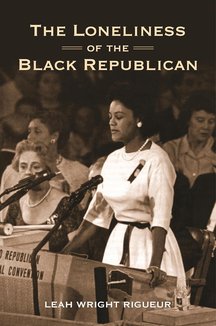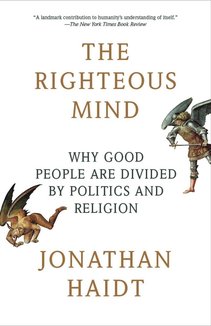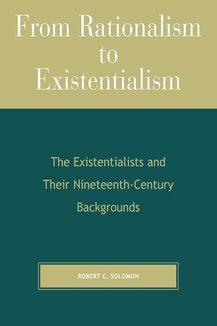Recommended Books

The Loneliness of the Black Republican: Pragmatic Politics and the Pursuit of Power (Politics and Society in Modern America)
Author:
Leah Wright Rigueur
ISBN 13:
978-0691173641
The story of black conservatives in the Republican Party from the New Deal to Ronald Reagan Covering more than four decades of American social and political history, The Loneliness of the Black Republican examines the ideas and actions of black Republican activists, officials, and politicians, from the era of the New Deal to Ronald Reagan's presidential ascent in 1980. Their unique stories reveal African Americans fighting for an alternative economic and civil rights movement―even as the Republican Party appeared increasingly hostile to that very idea. Black party members attempted to influence the direction of conservatism―not to destroy it, but rather to expand the ideology to include black needs and interests. As racial minorities in their political party and as political minorities within their community, black Republicans occupied an irreconcilable position―they were shunned by African American communities and subordinated by the GOP. In response, black Republicans vocally, and at times viciously, critiqued members of their race and party, in an effort to shape the attitudes and public images of black citizens and the GOP. And yet, there was also a measure of irony to black Republicans' "loneliness": at various points, factions of the Republican Party, such as the Nixon administration, instituted some of the policies and programs offered by black party members. What's more, black Republican initiatives, such as the fair housing legislation of senator Edward Brooke, sometimes garnered support from outside the Republican Party, especially among the black press, Democratic officials, and constituents of all races. Moving beyond traditional liberalism and conservatism, black Republicans sought to address African American racial experiences in a distinctly Republican way. The Loneliness of the Black Republican provides a new understanding of the interaction between African Americans and the Republican Party, and the seemingly incongruous intersection of civil rights and American conservatism.

The Righteous Mind: Why Good People Are Divided by Politics and Religion
Author:
Jonathan Haidt
ISBN 13:
978-0307455772
NEW YORK TIMES BESTSELLER • The #1 bestselling author of The Anxious Generation and acclaimed social psychologist challenges conventional thinking about morality, politics, and religion in a way that speaks to conservatives and liberals alike—a “landmark contribution to humanity’s understanding of itself” ( The New York Times Book Review ). Drawing on his twenty-five years of groundbreaking research on moral psychology, Jonathan Haidt shows how moral judgments arise not from reason but from gut feelings. He shows why liberals, conservatives, and libertarians have such different intuitions about right and wrong, and he shows why each side is actually right about many of its central concerns. In this subtle yet accessible book, Haidt gives you the key to understanding the miracle of human cooperation, as well as the curse of our eternal divisions and conflicts. If you’re ready to trade in anger for understanding, read The Righteous Mind .

From Rationalism to Existentialism: The Existentialists and Their Nineteenth-century Backgrounds
Author:
Robert C. Solomon Quincy Lee Centennial Professor of Business and Philosophy and Distinguishe
ISBN 13:
978-0742512412
In this enduring text, renowned philosopher Robert C. Solomon provides students with a detailed introduction to modern existentialism. He reveals how this philosophy not only connects with, but derives from, the thought of traditional philosophers through the works of Nietzsche, Kierkegaard, Husserl, Heidegger, Sartre, and Merleau-Ponty. Thus, existentialism emerges from the school of rational thought as a logical evolution of respected philosophy.
Find on:
 Amazon
Amazon